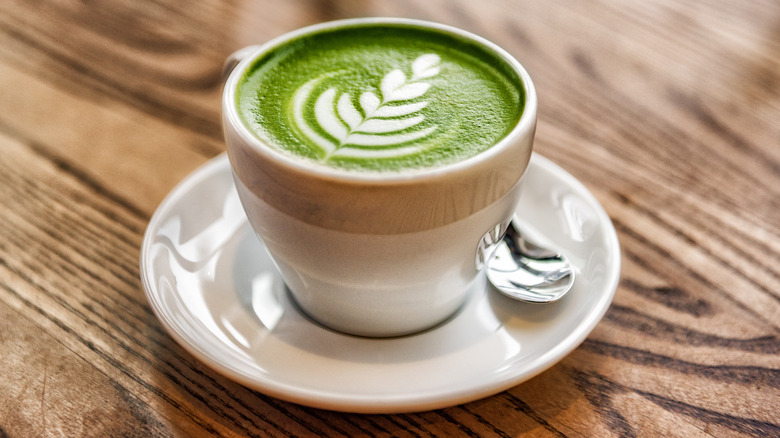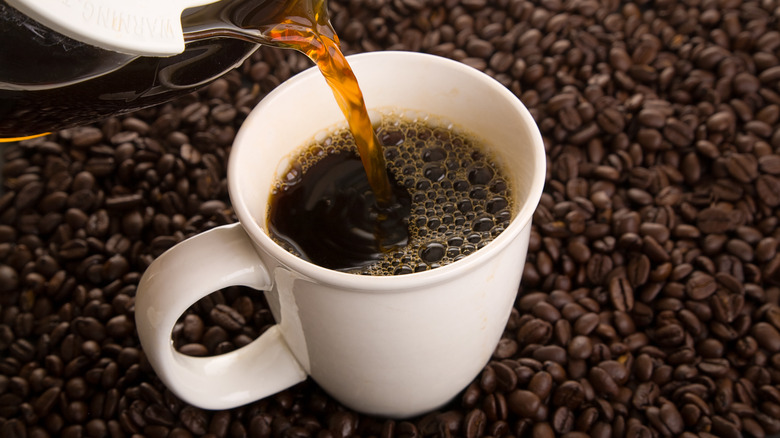How The Caffeine In Matcha Tea Compares To Coffee
You may find yourself searching for an alternative to coffee if you're concerned about your caffeine consumption. Matcha can serve as a flavorful replacement, but how do the two compare on the caffeine front? One cup of matcha has approximately 70 mg of caffeine, while a cup of coffee has between 70 and 150 mg of caffeine (depending on the variety and strength of the brew), with an average of about 100 mg. And though you're looking at much fewer fluid ounces for espresso, because it's a concentrated pull, one shot of it contains approximately 64 mg. (Don't forget the average latte or cappuccino typically contains about two shots).
So, if you're looking to scale back your caffeine consumption, it makes sense to switch to matcha. This also means that if you didn't want to quit coffee, you could make a weaker brew or resort to enjoying smaller cups to keep it on the low end — 70mg, the same as matcha. Another thing to consider is that matcha also has other benefits associated with it — for example, it contains antioxidants and, despite the caffeine, can help you sleep better. On top of all of that, it's also delicious, which is essential if it's going to replace coffee in your life. While Tasting Table does include matcha in our list of 20 coffee substitutes to start your day, you should know all the facts before completely cutting coffee out of your life. Namely, there's one key question we should address: how much caffeine is too much?
How much caffeine is healthy to consume in a day
According to the FDA, it is safe for the average healthy adult to consume up to 400 mg of caffeine each day without the risk of any adverse side effects. These effects include headaches, increased heart rate, anxiousness, and insomnia. Further, if you go overboard on caffeine — about 1,200 mg in one day — you can set yourself up for the risk of seizures. To simplify things, 400 mg of caffeine equals about five cups of coffee, three lattes (with two espresso shots each), or about six cups of matcha. When you put it this way, there doesn't seem to be too much of a difference between matcha and coffee unless you're regularly drinking five cups of coffee per day (in which case switching to matcha would allow you to have that one extra cup).
So, overall, it comes down to personal choice. If you're looking to watch your caffeine but love the taste of coffee, you can regulate how much you're taking in now that you know how much is in one cup (compared to how much is safe for a day). If you switch to matcha, you may want to do so for the additional benefits mentioned above — or because it's delicious in its own right.

